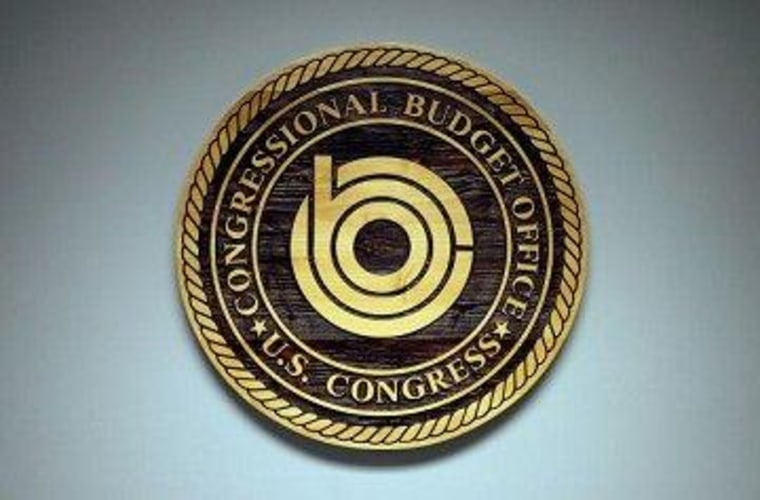When the Heritage Foundation launched an offensive against comprehensive immigration reform in early May, it focused its attention almost exclusively on one area: the legislation's price tag. After all, one of the first questions lawmakers ask in response to any proposal is, "What does it cost?" and if the bipartisan reform bill is too pricey, Congress will have a good excuse to reject it.
With that in mind, Heritage, relying on numbers that no one could take seriously, said immigration reform would cost taxpayers over $6 trillion. Yesterday, the non-partisan Congressional Budget Office -- the official score-keepers for federal lawmakers -- published a very different figure.
A long-awaited analysis by the Congressional Budget Office found that the benefits of an increase in legal residents from immigration legislation currently being debated in the Senate -- which includes a pathway to citizenship -- would outweigh the costs. [...]The report estimates that in the first decade after the immigration bill is carried out, the net effect of adding millions of additional taxpayers would decrease the federal budget deficit by $197 billion. Over the next decade, the report found, the deficit reduction would be even greater -- an estimated $700 billion, from 2024 to 2033.
The full report from the CBO is online here (pdf).
This is incredibly important, and puts conservatives in an exceedingly awkward position. According to the CBO's non-partisan analysis, the comprehensive immigration reform plan pending on Capitol Hill would be one of the biggest deficit-reduction bills in decades, reducing the deficit by nearly $200 billion in the next decade, and nearly $900 billion over the next 20 years.
In an amusing twist, the CBO does not ordinarily score bill bills beyond the first 10-year window, but in this case, the agency made an exception -- because Sen. Jeff Sessions (R-Ala.), a fierce opponent of reform, asked it to, assuming it would help bolster his case. Oops.
This is simply devastating for Republican opponents of reform. Indeed, one of the pillars of the right's argument has suddenly been shattered.
I suppose the right will seize on the elements of the CBO report that point to outlays -- as undocumented immigrants become eligible for various benefits, including the Affordable Care Act, there will be additional government spending.
But the point is, the savings would easily outweigh the costs, as immigrants become citizens and begin paying income and payroll taxes. The CBO also projects an increase in the nation's gross domestic product.
So, let's summarize the case for conservatives -- who, remember, generally describe federal budget deficits as such an extraordinary problem that they threaten the future of our civilization. According to the CBO, comprehensive immigration reform will dramatically reduce the deficit without raising taxes, boost the economy, and strengthen the fiscal future of Social Security and Medicare. It will also, incidentally, help millions of families and countless American communities.
And it's against this backdrop that most congressional Republicans are still eager to kill the legislation.
